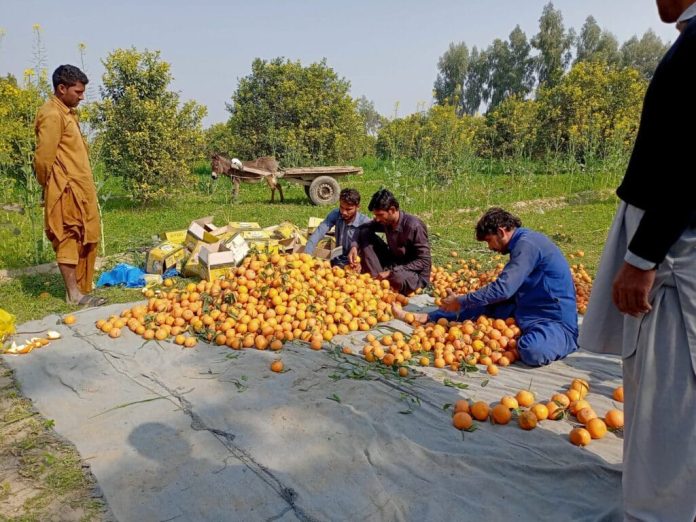Pulp purchase from Sargodha, Rahim Yar Khan, Multan drop drastically in last one year due to federal government’s regressive tax policies
Fruit farmers have appealed to Chief Minister Punjab Maryam Nawaz to reduce the federal excise duty on packaged juices as pulp purchase by pulping units in Punjab have dropped significantly over the last year, resulting in massive losses, said industry officials on Wednesday.
Fayyaz Chaudhry, who owns 20 acres near Multan and grows two to three varieties of Chaunsa mangoes, most of which are exported, said that while yields are increasing annually, wastage remains a problem due to the perishable nature of mangoes and the lack of proper storage units. “Most of our produce is exported, but demand fluctuates. During declines, we sell to local pulp producers who then supply juice makers,” he explained.
“We appeal to Chief Minister Punjab Maryam Nawaz sahiba to save us from these policies of the federal government,” he said.
Fruit farmers are already grappling with the effects of regressive taxation policies on the juice industry, which has caused a decline in the market for surplus produce and export leftovers. The imposition of a 20 percent federal excise duty (FED) on fruit juice manufacturers in the last federal budget has significantly reduced the market for surplus produce and export leftovers.
In response, the juice industry has cut back on its fruit pulp purchases, leading pulp manufacturers to scale down their fruit procurement due to lower demand. Traditionally, fruit orchard owners sold their surplus produce and high yields to pulp manufacturers, who then supplied the juice companies, creating a value chain that benefited local growers. Annually, over 100,000 tonnes of fruits like guava, mangoes, apples, oranges, and strawberries are purchased.
The local juice beverage industry has been burdened with increasing taxes in recent years. The 2023-2024 budget increased the FED from 5 percent (plus 17 percent sales tax) in 2018-2019 to 20 percent (plus 18 percent sales tax). This results in a total tax impact of 42 percent, as the sales tax is applied after the 20 percent FED.
Policymakers failed to consider the combined impact of increased taxation, a more than 50 percent rise in raw material costs, and inflationary pressures on prices. Instead of increasing overall tax revenue, these measures have led to a decreased tax contribution from the beverage sector to the national treasury.
Industry officials reported a 41 percent decline in volume following the imposition of the CED, with production halted for over 100 days a year. Prior to the recent FED hike, the fruit juice industry was thriving, with a turnover of approximately Rs60 billion, investments of Rs40 billion, and significant job creation. Consumers benefited from increased competition, which expanded the product range to include healthier, sugar-restricted options.


